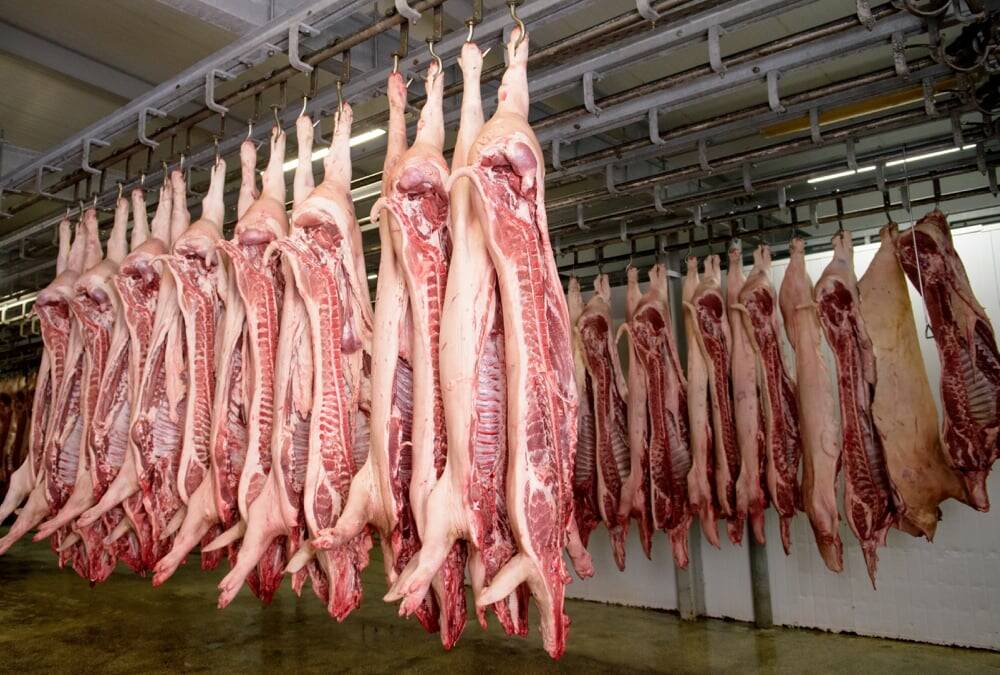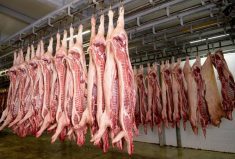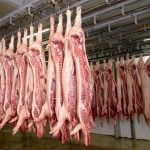Chicago | Reuters — Chicago soybean futures fell on Wednesday, touching their lowest in more than a week, pressured by technical selling combined with rains across South America, which eased supply concerns.
Corn followed, also pressured by beneficial South American rains, while wheat ended lower, but was supported by export optimism.
The Chicago Board of Trade (CBOT) most-active soybean contract ended 16-1/4 cents lower at $13.69-1/2 per bushel (all figures US$).
CBOT corn slid four cents to $5.22 per bushel, while wheat lost 4-1/2 cents to end at $6.67-3/4 per bushel.
Read Also

U.S. livestock: Lean hogs tick down on supply numbers, year-end positioning
Chicago | Reuters – Chicago Mercantile Exchange live cattle and lean hog futures fell while feeder cattle futures rose on…
Soybeans fell 33-3/4 cents in early-session trading, before regaining ground midday, as funds sold long positions.
“It could be some of the rains we’ve seen in South America, it could be simple fund liquidation,” said Dan Smith, senior risk manager at Top Third Ag Marketing, noting that additional export news could push soybean futures higher. “This market needed a little break, to be honest. You can’t go straight up.”
China’s soybean imports from the United States rose 52.8 per cent in 2020, according to U.S. Customs data.
Soybeans could face increased volatility as markets look for direction before the South American harvest begins in force.
“I’m looking for a high volatility period in the next month,” Smith said.
Meanwhile, wheat traded just under even, supported by impending Russian export taxes, though expected rainfall across the U.S. muddied the trading waters on Wednesday.
“The eastern areas of the U.S. southern Great Plains are expected to get some precipitation over the next seven days, which is good for the winter wheat crop,” said Terry Reilly, senior analyst with Futures International.
Corn slipped overnight but regained much of the losses.
The U.S. Environmental Protection Agency on Tuesday granted three waivers to oil refiners that exempt them from biofuel blending obligations, a last-minute move before President Donald Trump leaves office.
— Christopher Walljasper reports on agriculture and ag commodities for Reuters from Chicago; additional reporting by Gus Trompiz in Paris and Naveen Thukral in Singapore.















